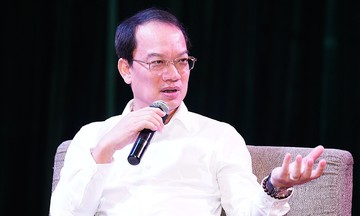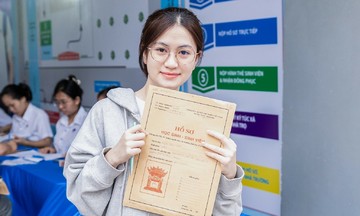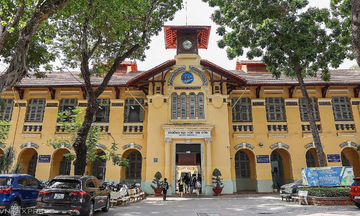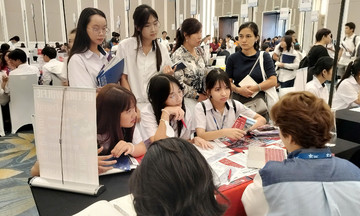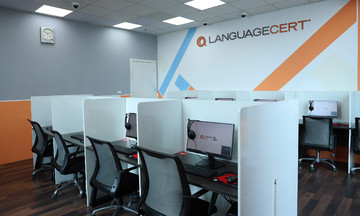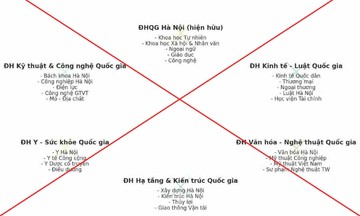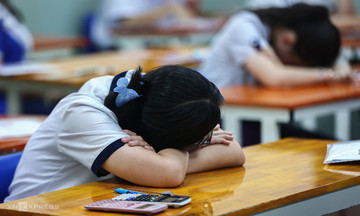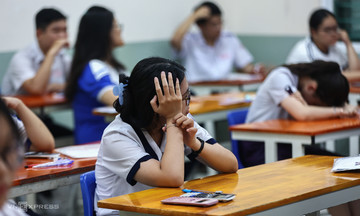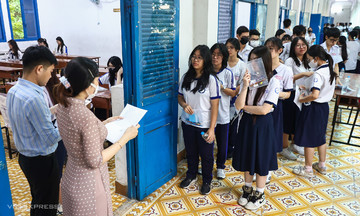Professor Nguy Nhu Kontum was born in 1913 in Kon Tum, to a middle-class family originally from Hue. From a young age, he was known for his intelligence and academic excellence. A student at Quoc Hoc Hue High School, he graduated with honors in 1930 and received a scholarship to study for the Indochinese Baccalaureate at Buoi High School in Hanoi.
In 1932, having passed the Indochinese Baccalaureate, the French Baccalaureate in Mathematics, and the French Baccalaureate in Philosophy, he received a full scholarship to study at the Sorbonne University in Paris, France. After only three years, he earned a Bachelor of Science degree with honors. Three years later, he received a Master's degree in Physics and Chemistry, becoming the first Vietnamese person to earn a Master's in Physics in France.
In early 1939, the young Vietnamese intellectual was accepted by the French scientist Frederic Joliot-Curie, son-in-law and assistant of Marie Curie, to pursue a doctoral dissertation in physics. However, just one year later, World War II broke out.
He recounted that at that time, Frederic Joliot-Curie's laboratory was requisitioned by the French Ministry of Defense.
"Professor Joliot-Curie advised that if I wanted to stay, I had to meet two conditions: apply for French citizenship and be recruited by the French Ministry of Defense. But I thought that my country needed me more than France," Professor Kontum later told his students and colleagues. He followed his teacher's advice and returned to Vietnam at the end of 1939.
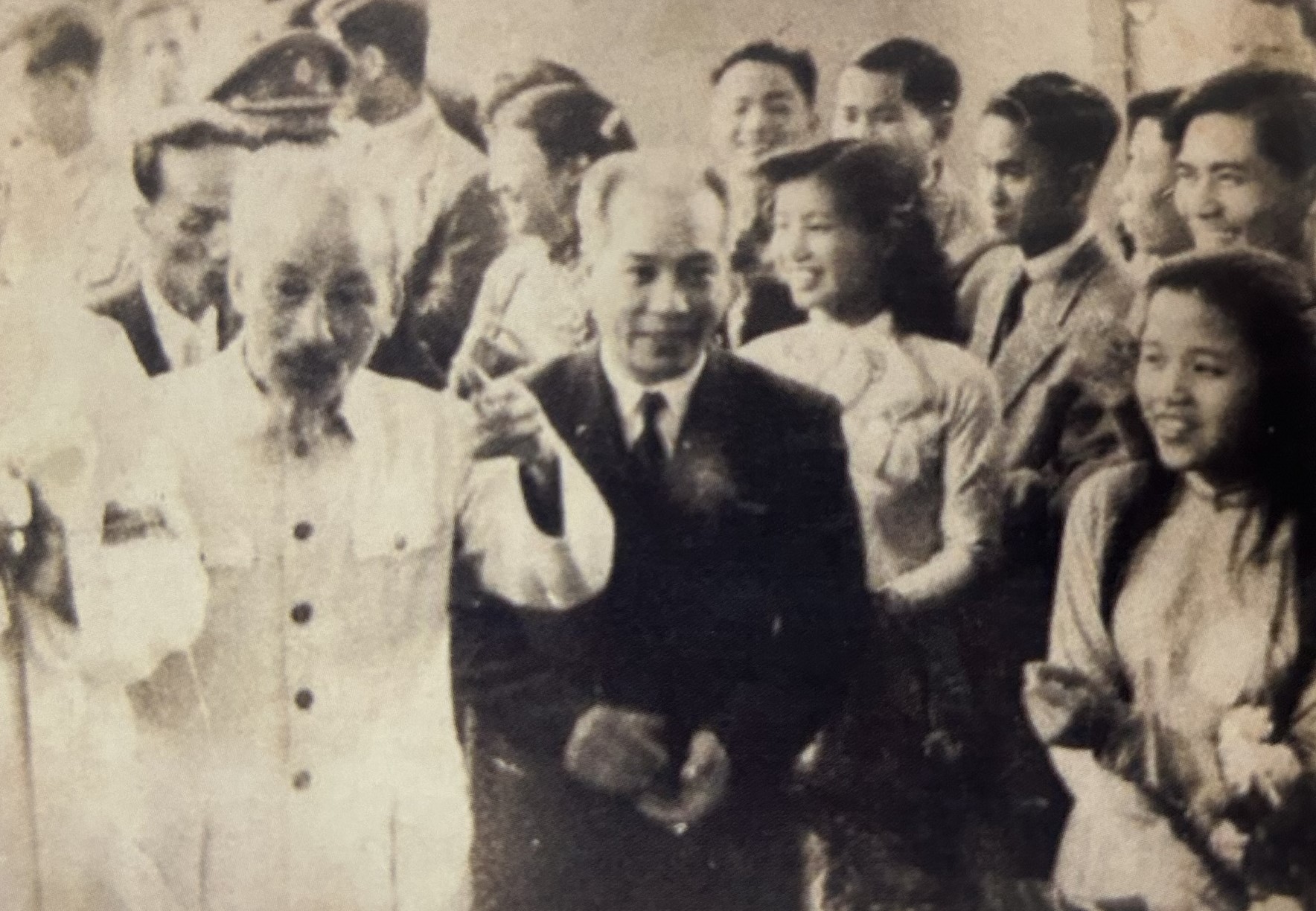 |
Portrait of Professor Nguy Nhu Kontum in 1939. Photo: Family archives |
Portrait of Professor Nguy Nhu Kontum in 1939. Photo: Family archives
Upon his return, he taught at Chasseloup High School (Saigon) and then Buoi High School (Hanoi). During this time, he, along with professors Duong Quang Ham, Tran Van Khang, and Le Thuoc, were responsible for teaching all subjects in Vietnamese, marking the beginning of Vietnamese-language education in Vietnam.
To provide students with opportunities to interact in their native language, he established the Dragon Group (SET), consisting of several teams, each named after a Vietnamese national hero or patriot. The group regularly organized activities and excursions to famous landmarks to foster patriotism.
He also collaborated with professors Nguyen Xien, Hoang Xuan Han, and Nguyen Thuc Hao to publish the first Vietnamese-language science journal.
In the autumn of 1945, as people across the country eagerly awaited the introduction of the provisional government, Professor Kontum, along with intellectuals Nguyen Xien, Nguyen Van Huyen, and Ho Huu Tuong, sent a telegram to Hue on 22/8, urging Emperor Bao Dai to abdicate and hand over power to the Viet Minh to avoid civil war.
The telegram was concise but conveyed a powerful message: "A provisional revolutionary people's government has been established. Its president is Ho Chi Minh. We request the emperor to abdicate immediately to consolidate and unify the country on the basis of independence."
Although a small political act at a critical juncture, with the uprising having already succeeded in many places, the telegram reflected the aspirations of a large segment of intellectuals from the Central, South, and North regions (Nguyen Van Huyen from the North, Ho Huu Tuong from the South, Nguy Nhu Kon Tum and Nguyen Xien from the Central region).
In 1946, when the resistance war against the French broke out, Professor Kontum went to the Viet Bac resistance base. During this period, he was appointed Director of the Indochina Campus (1945-1946).
Associate Professor Dr. Nguy Tuyet Nhung, his daughter and a former lecturer at the University of Science, Vietnam National University, Hanoi, recounted that her father was once offered the position of Minister of Education by Ho Chi Minh. However, he declined and recommended Professor Nguyen Van Huyen instead, accepting the position of Director of Secondary Education under the Ministry.
Nhung shared that her father traveled throughout the Viet Bac resistance base on his old bicycle to establish a network of high schools. Once, he was nearly killed by a bomb on the road, and another time, he fell from his bicycle and injured his face. He also compiled physics textbooks for schools.
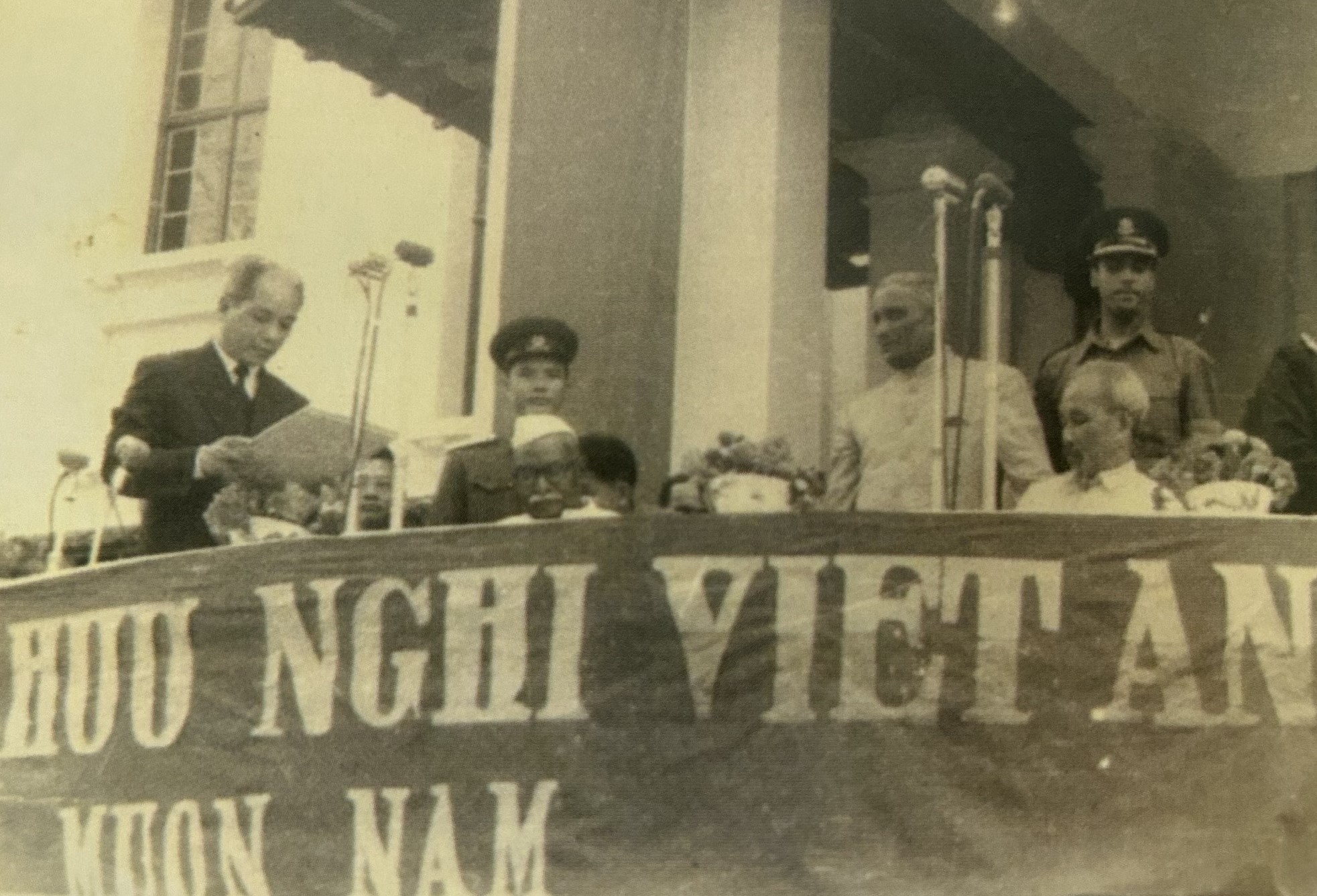 |
Professor Nguy Nhu Kontum and his family at the Nanning campus, China, around 1951-1952. Photo: Family archives |
Professor Nguy Nhu Kontum and his family at the Nanning campus, China, around 1951-1952. Photo: Family archives
The first and longest-serving rector of Hanoi National University
In 1951, Professor Kontum was appointed Director of the Advanced Pedagogical School at the Central Campus in Nanning, China. After the liberation of North Vietnam, he returned to the capital and was tasked with developing the university system and teaching physics at the Science Pedagogical School.
In 1956, Hanoi National University, the predecessor of Vietnam National University, Hanoi, was established. Professor Kontum was appointed rector by President Ho Chi Minh and held this position until 1982 when he retired at the age of 70.
To many scientists of his time, Professor Kontum was a modest rector with silver hair, willing to participate in all activities, from helping people combat floods and carrying rice to inspiring students.
Sharing with Vietnam National University, Hanoi on the occasion of the 100th anniversary of Professor Kontum's birth (in 2013), mathematics professor Phan Van Hap, a student of the first class of Hanoi National University, recalled the autumn of 1958 when the entire university participated in agricultural labor in Binh Da, Ha Dong (former). The rector also herded buffaloes, carried rice, and dug canals.
When he became a staff member of the university, Professor Hap was impressed by his teacher's modesty and attentiveness. He recalled a time when he and his teacher were working on admissions in Nghe An province. After the chemistry exam, Professor Kontum called in a student from the mountainous region upon learning that the student had not completed the exam due to a stomachache. After hearing the explanation, the professor reminded Hap to record the specific circumstances to report to the Ministry's examination steering committee.
During the recruitment drive at the beginning of the 1971-1972 academic year, Professor Kontum saw students off to war in the morning and then rolled up his pants to help people combat the floods and overcome the consequences of the century's flood in late 1971 in the afternoon.
While working with the entire university to rescue submerged rice in Yen Vien, he thought of using his expertise to help address the consequences. He directed the physics department staff to restore electronic equipment, while other departments sought long-term preventive measures such as termite control on dikes and addressing obstacles to water flow.
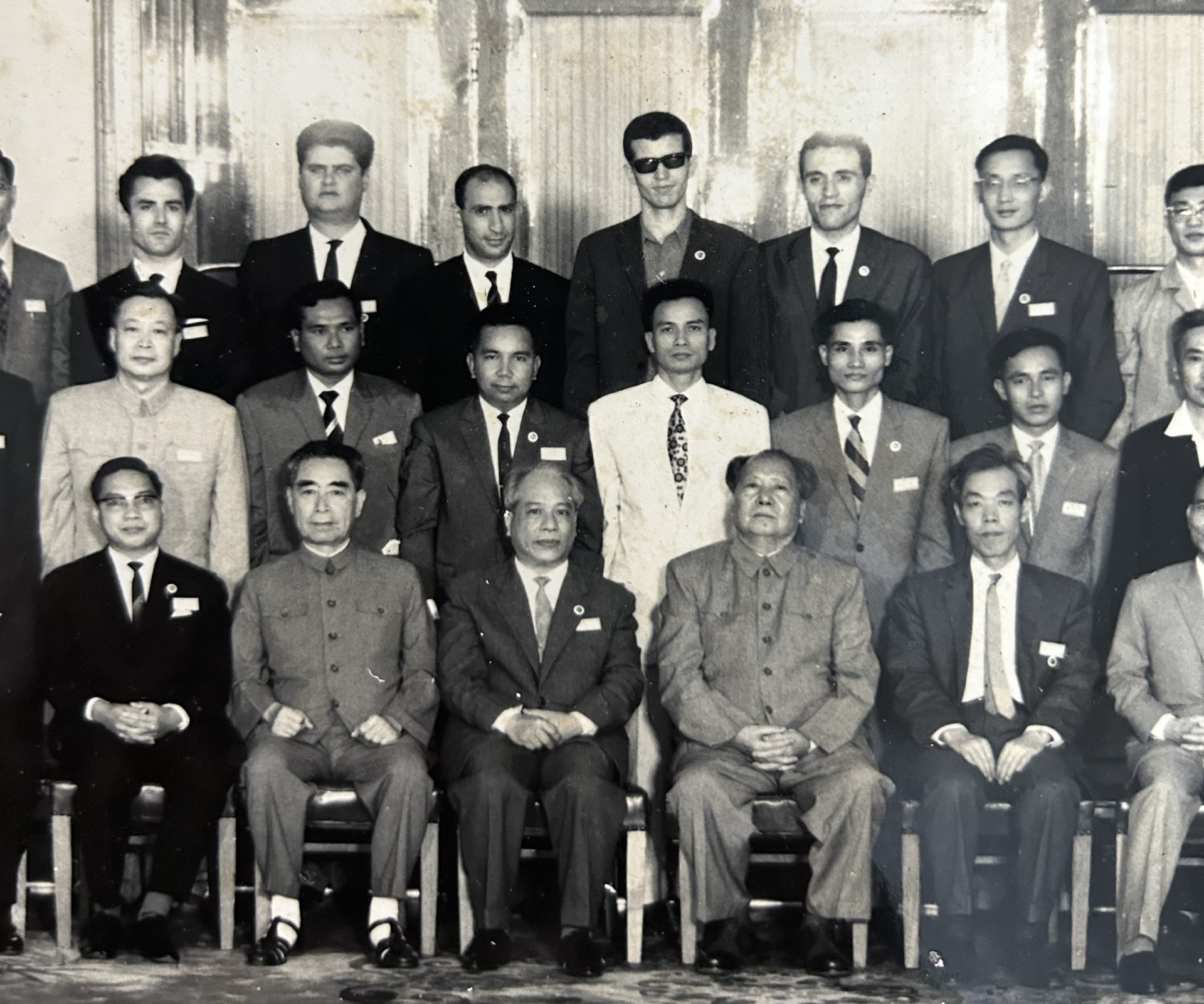 |
Professor Nguy Nhu Kontum participating in the "Slow Bicycle Ride" contest with students. Photo: Family archives |
Professor Nguy Nhu Kontum participating in the "Slow Bicycle Ride" contest with students. Photo: Family archives
Despite his busy management schedule, Professor Kontum directly taught students, trained young staff, and chaired and participated in the compilation of numerous programs and research topics.
After studying abroad and returning to Vietnam in 1969, Nguy Tuyet Nhung taught at the same university where her father was the rector. She said her father had struggled with resolving issues related to training perspectives at a highly intellectual institution with many erudite professors.
In addition, Professor Kontum was a knowledgeable geophysicist. He was the head of the first Vietnamese scientific delegation to attend the International Geophysical Conference in Moscow in 1957, the author of numerous modern physics research works, and several secondary and university textbooks such as Methods of Teaching Physics, Mechanics, Fundamentals of Physics, and Explanation of Vietnam's Legal Units of Measurement (published in 1997).
Along with Professor Nguyen Xien, he contributed to the successful development of geophysics in Vietnam. After retirement, he continued to teach and participate in the Scientific Council at Hanoi National University, served as a member of the Presidium of the Vietnam Union of Science and Technology Associations, President of the Vietnam Physical Society, and participated in compiling the physics section of the Vietnamese Encyclopedia.
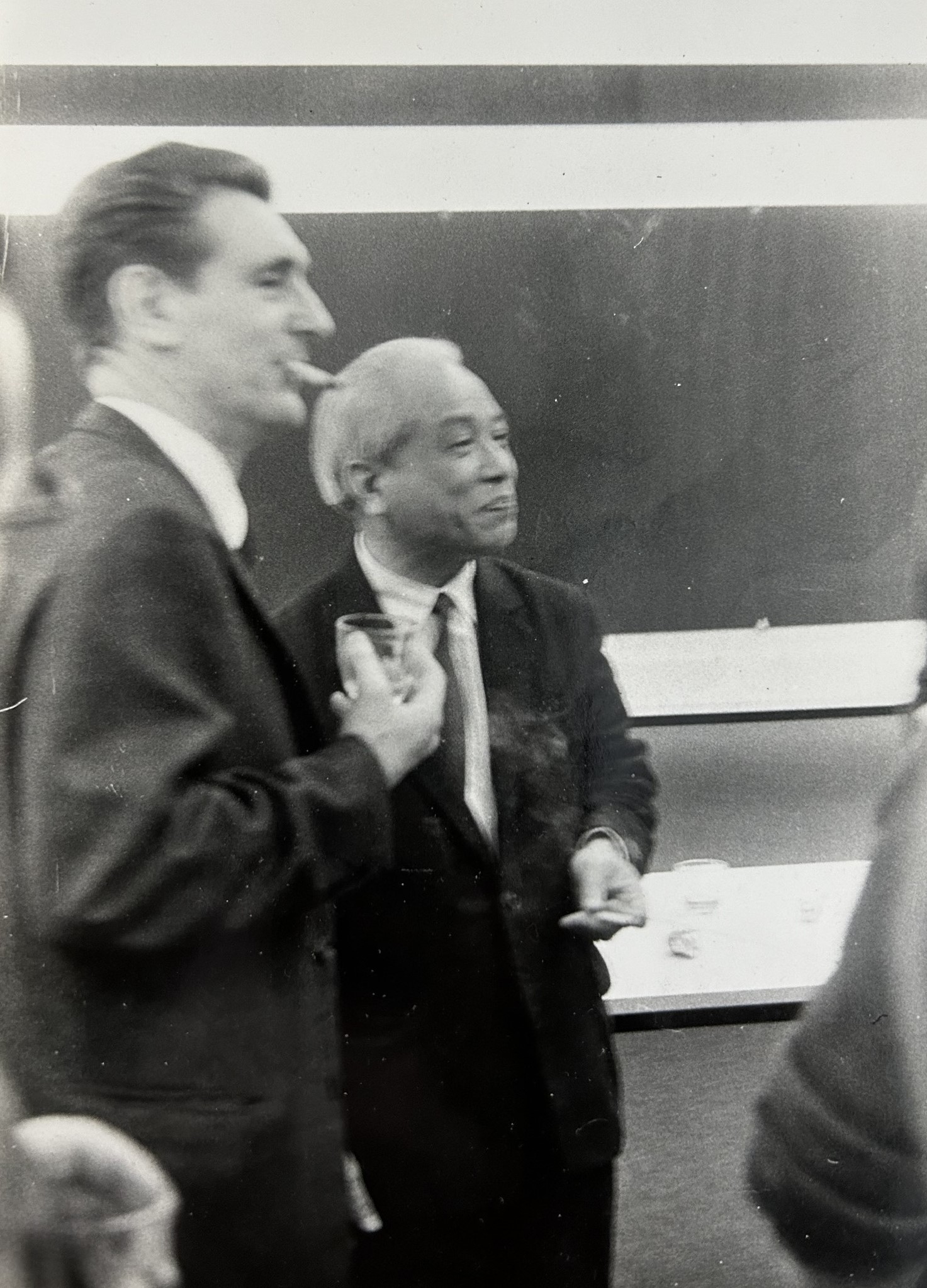 |
President Ho Chi Minh visiting and talking with teachers and students of Hanoi National University in 1958.
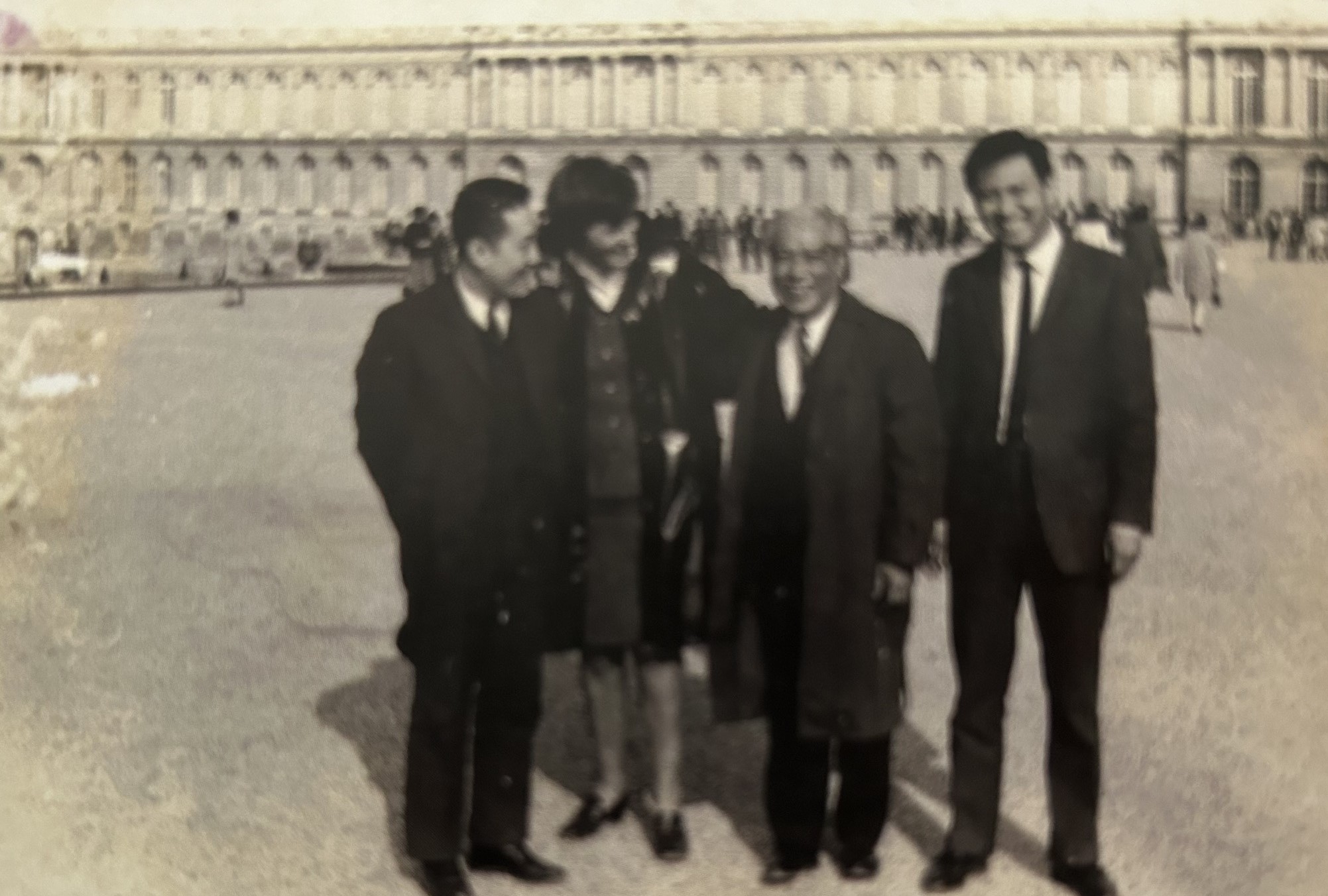 |
Professor Nguy Nhu Kontum speaking at the reception hosted by President Ho Chi Minh for the Indian President's visit to Hanoi National University.
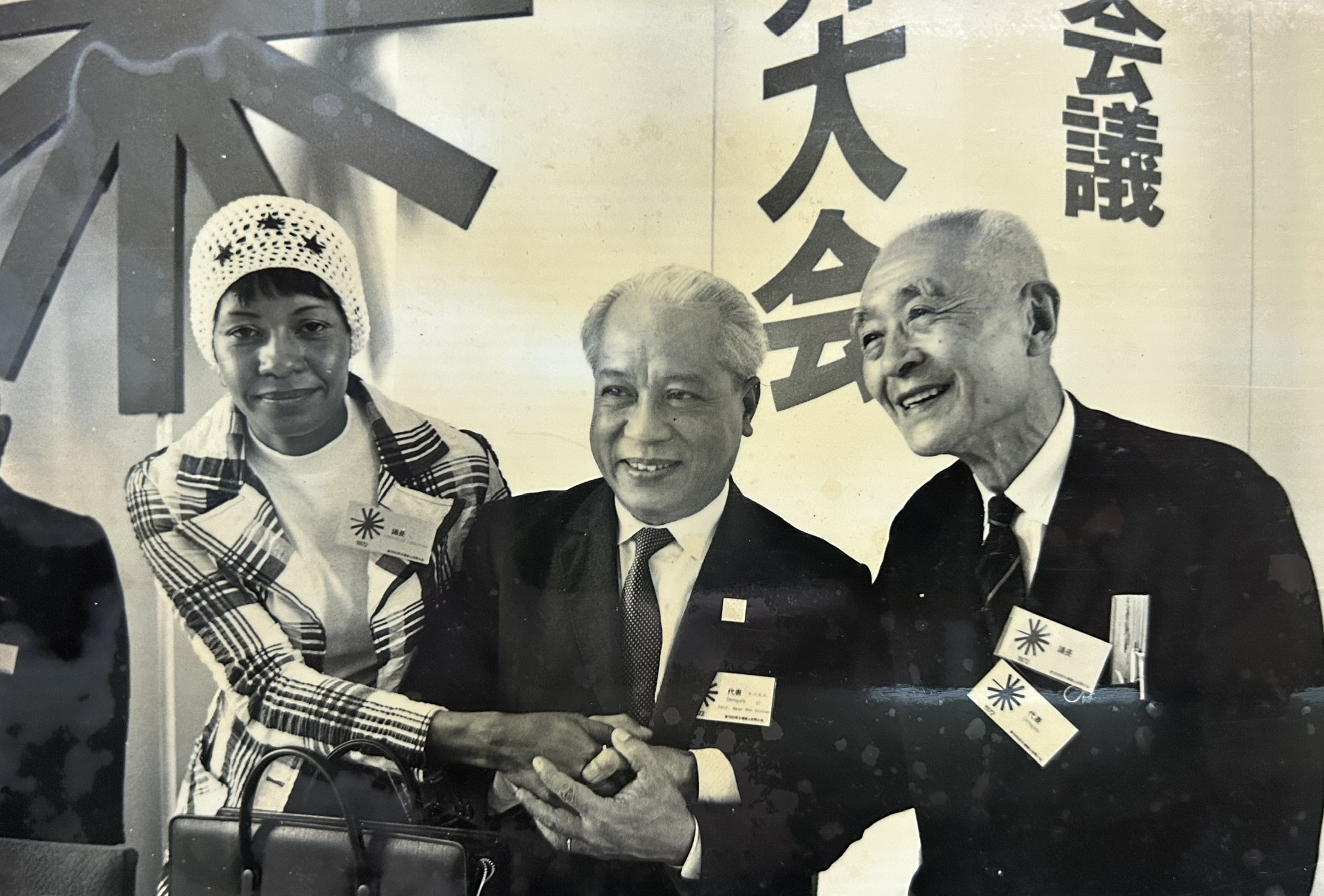 |
Professor Kontum in a commemorative photo from the International Physics Conference in China in 1966, seated next to Chinese leaders Mao Zedong and Zhou Enlai.
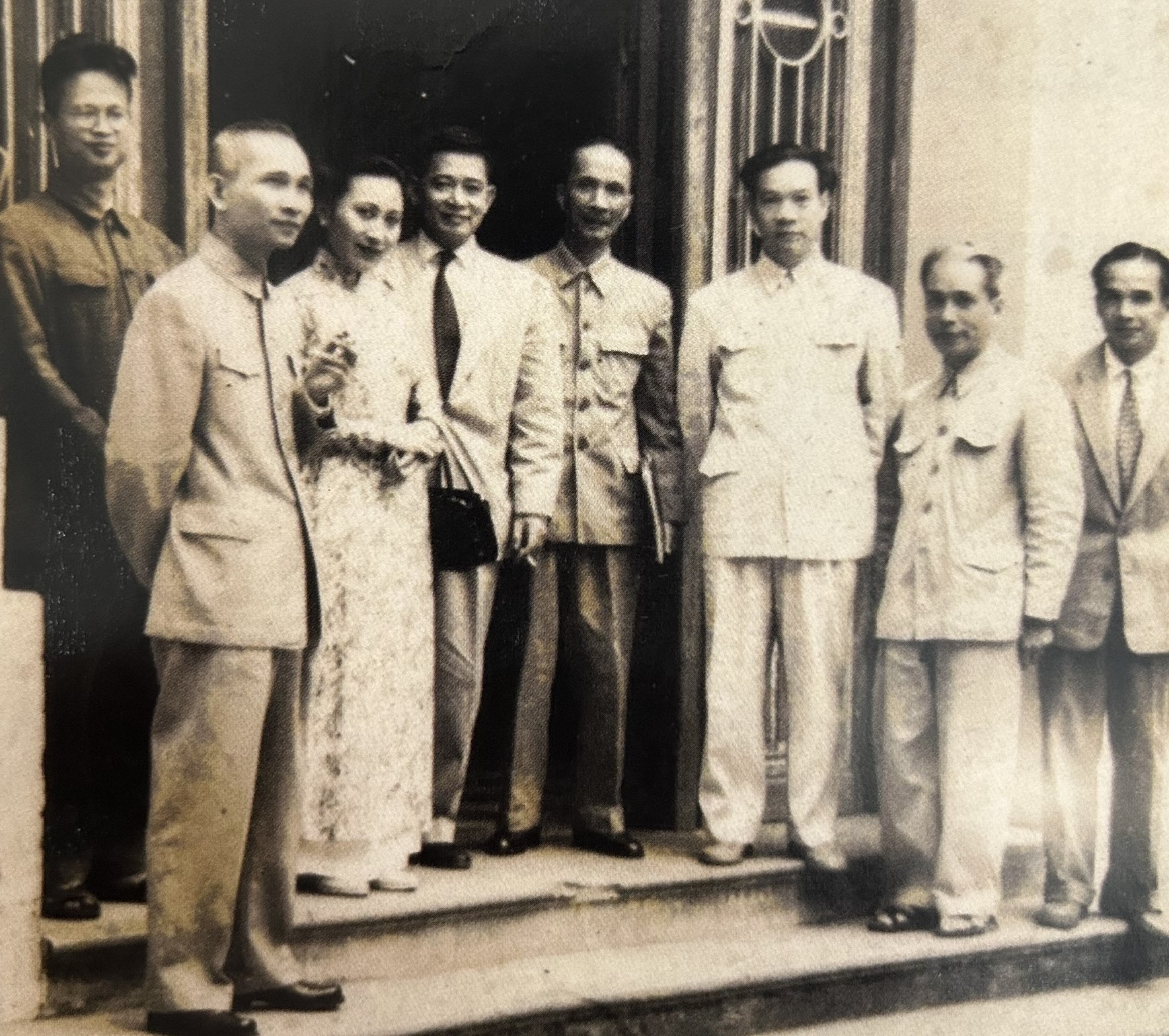 |
Professor Kontum and his teacher, Professor Frederic Joliot-Curie.
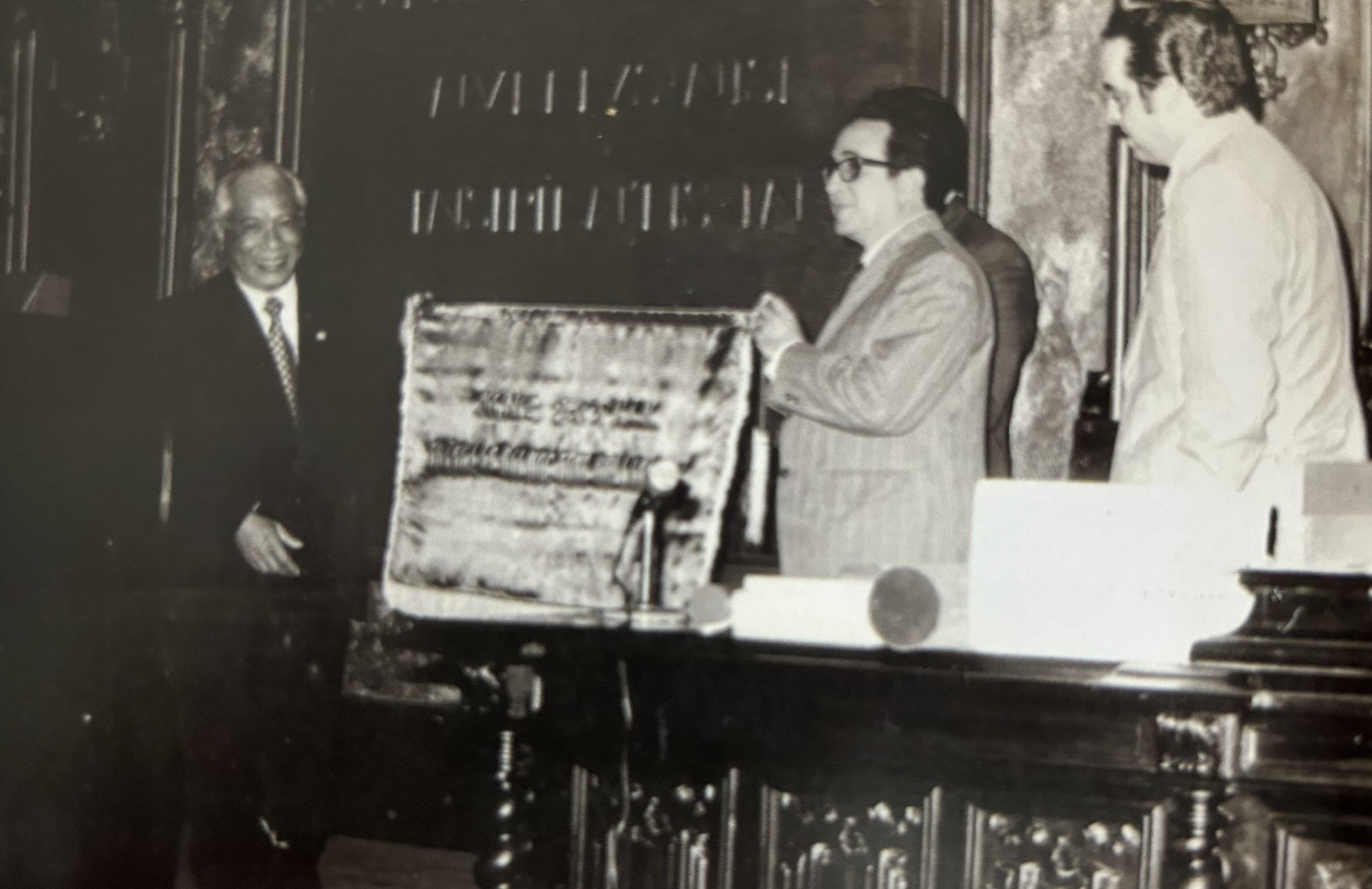 |
Professor Kontum attending a conference in France in 1971.
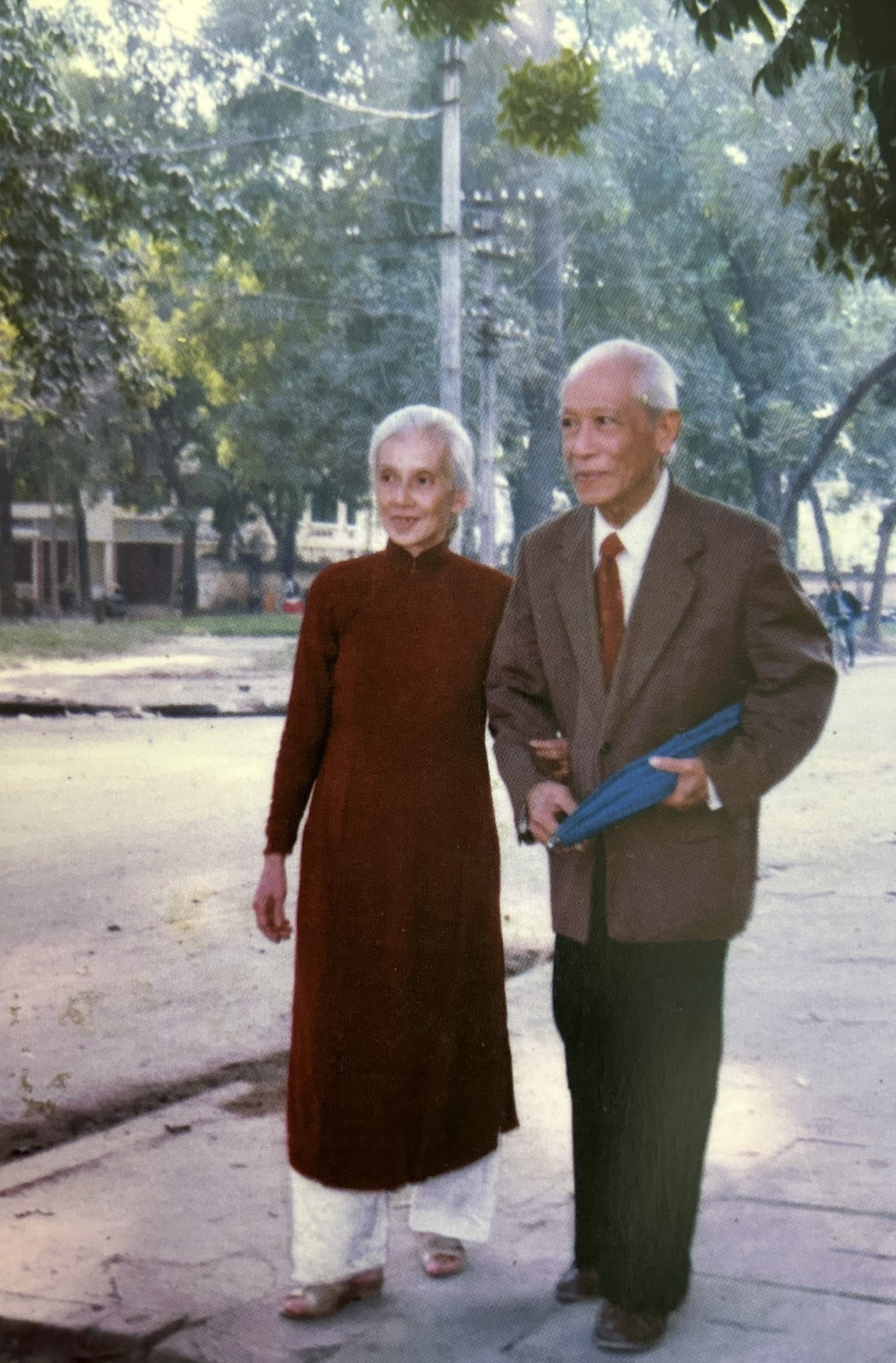 |
Professor Kontum attending the Anti-Atomic Bomb Conference in Japan in 1972.
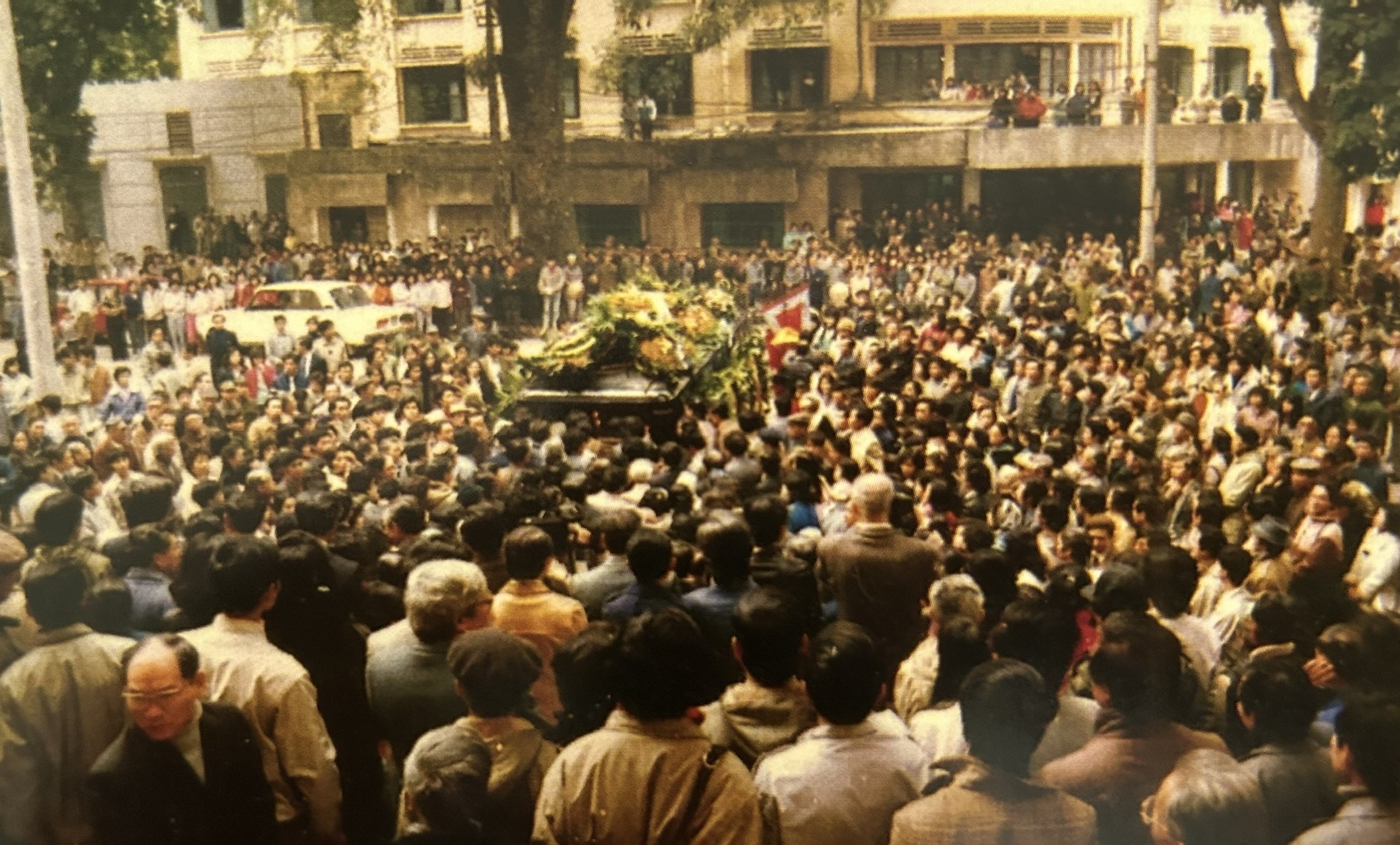 |
Professor Kontum posing with colleagues (From left: Professor Tran Duc Thao, Le Kha Ke, Vo Thi Tri Tuc, Nguyen Hoan, Ho Dac Di, Vu Nhu Canh).
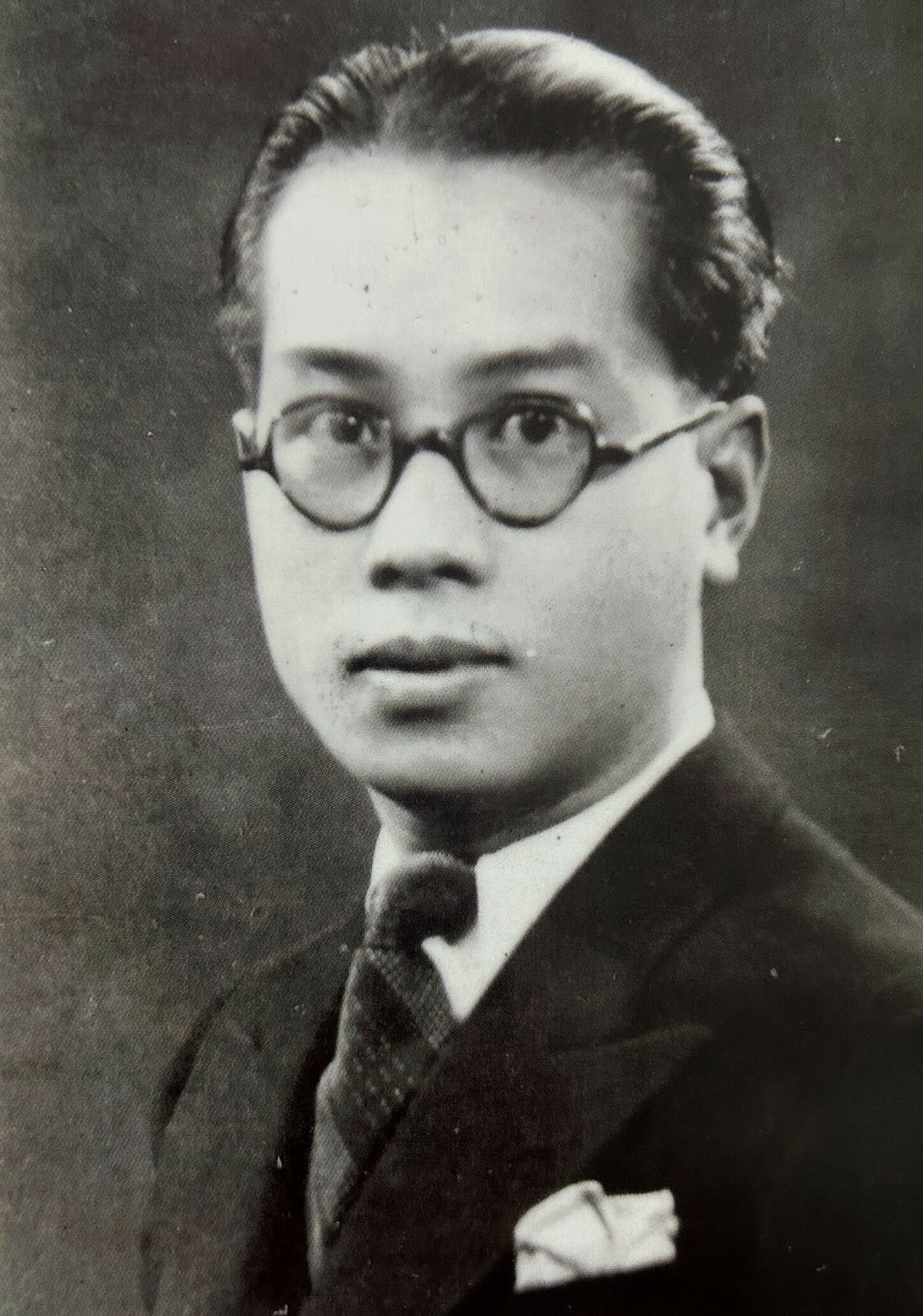 |
Professor Kontum visiting the University of Havana, Cuba.
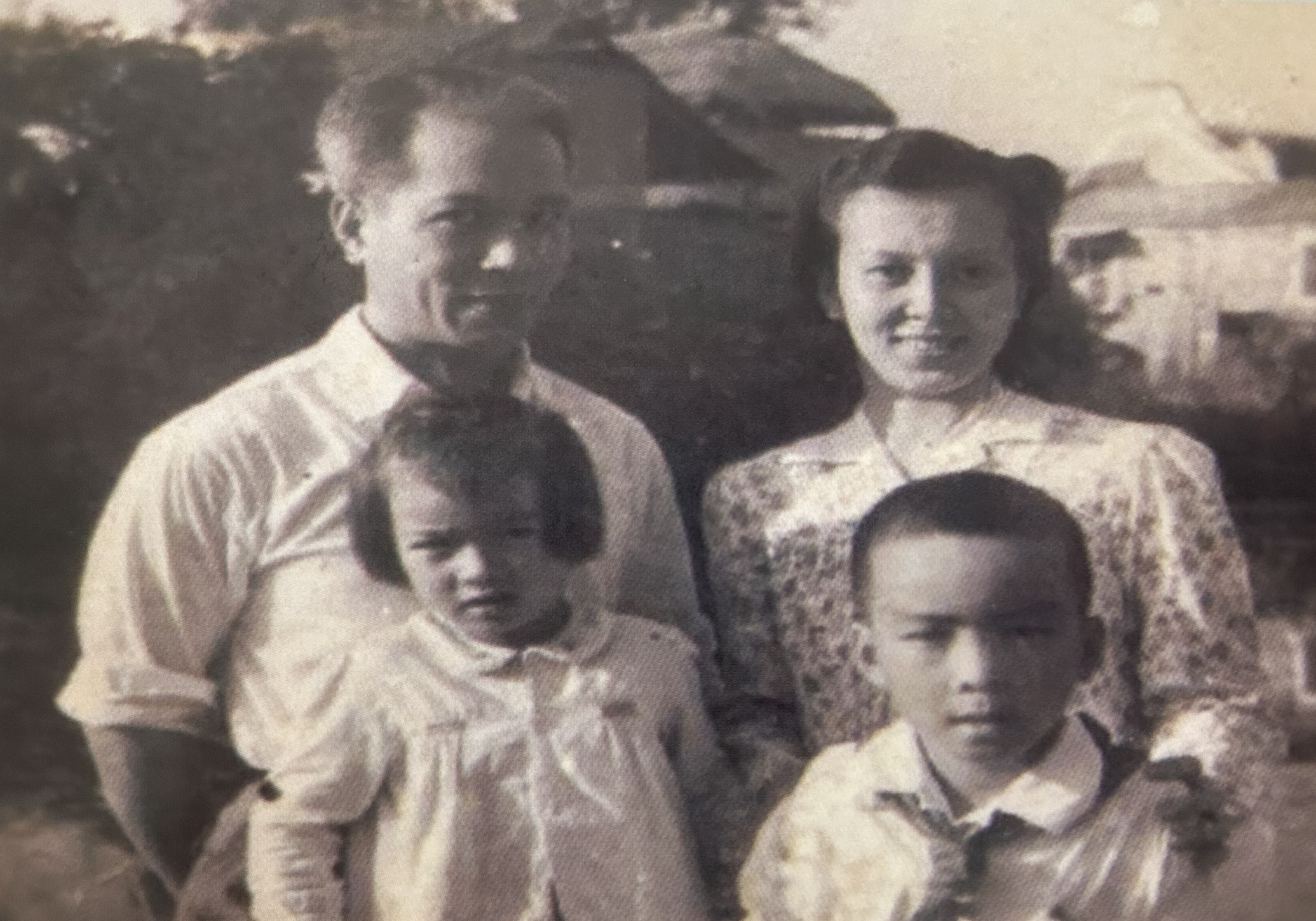 |
Professor Nguy Nhu Kontum and his wife.
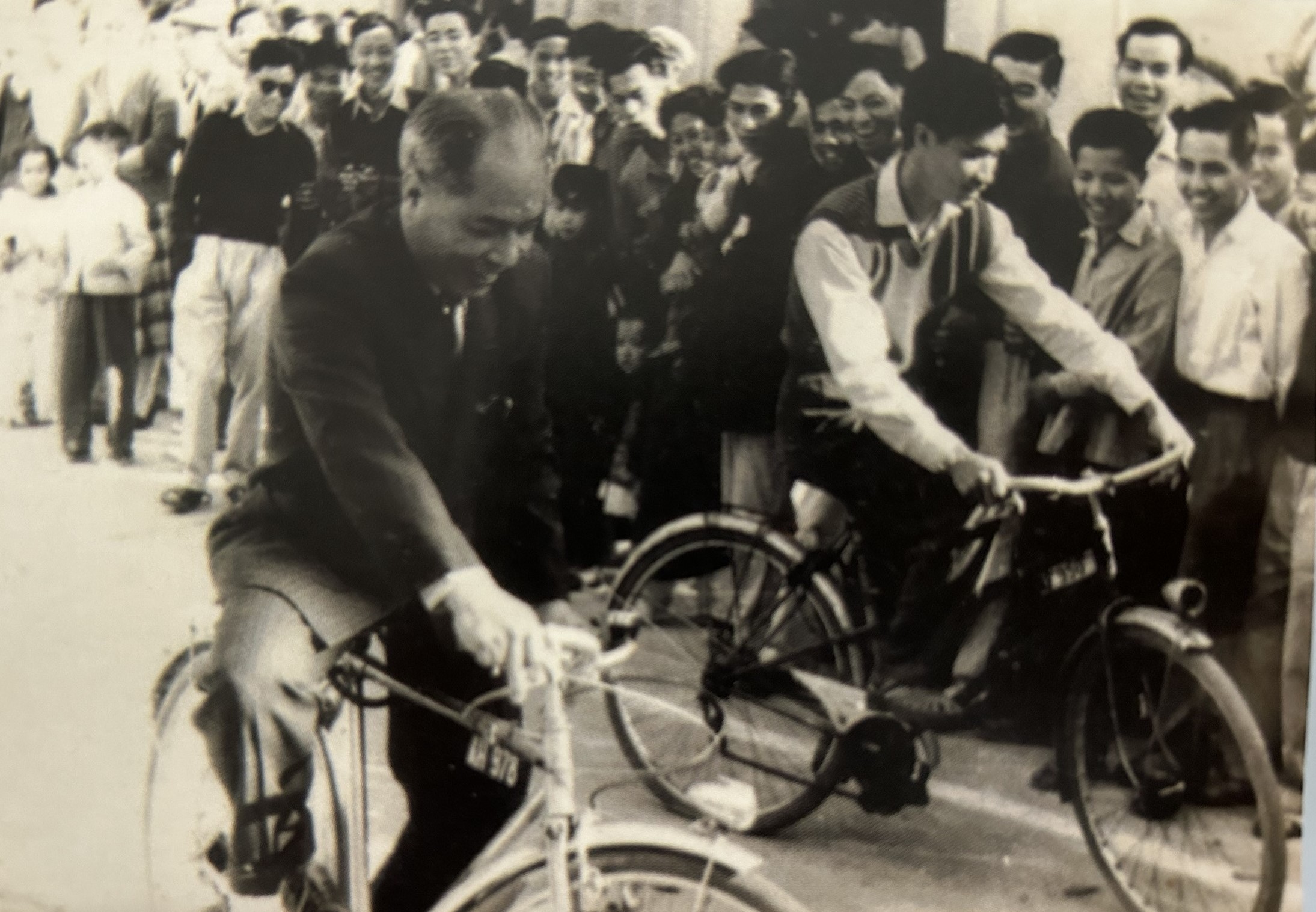 |
Professor Kontum's funeral in 1991.
Leafing through three family albums in the small living room, Associate Professor Nguy Tuyet Nhung described each photo in detail, her eyes shining with pride. Numerous photos of her father's scientific and social activities abroad are preserved, including a photo over a meter long taken at an international conference gathering hundreds of scientists from all five continents. Her father is seated among Chinese leaders Mao Zedong and Zhou Enlai, along with other renowned scientists.
"He traveled abroad frequently, but the gifts he brought back for the family were just photos, paper fans, and pens," she said. "He often requested books and equipment for the university, including an atomic absorption spectrophotometer for the geology department."
Later, when Nhung and her husband, Associate Professor Phan Van Quynh, were pursuing doctoral studies in Russia, Professor Kontum and his wife, Nguyen Thi Do, took care of their granddaughter so they could focus on their studies.
Associate Professor Nhung said her father did not discriminate between sons and daughters and did not force his children to pursue any particular field of study. However, his passion inspired both her and her brother to follow in his footsteps. She pursued chemistry and then geochemistry. She learned from her father the value of respecting children's choices without preaching or coercion.
Nhung paused for a long time at the photo of the dense crowd at her father's funeral.
"That is precious, showing everyone's affection for my father," she said.
Today, Professor Nguy Nhu Kontum's name is given to a street over one kilometer long in Thanh Xuan, Hanoi, and a hall at Vietnam National University, Hanoi. Kon Tum province also has a street, a school, and a scholarship fund named after him.
Duong Tam



